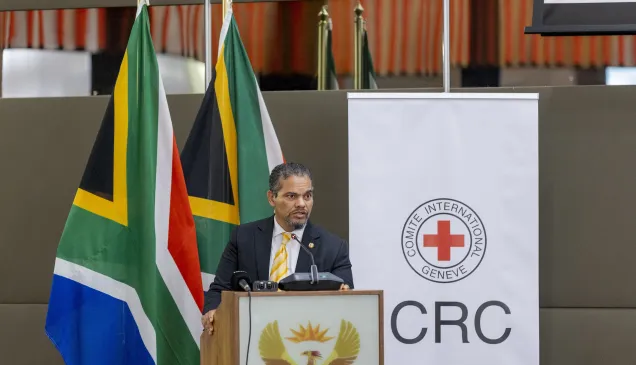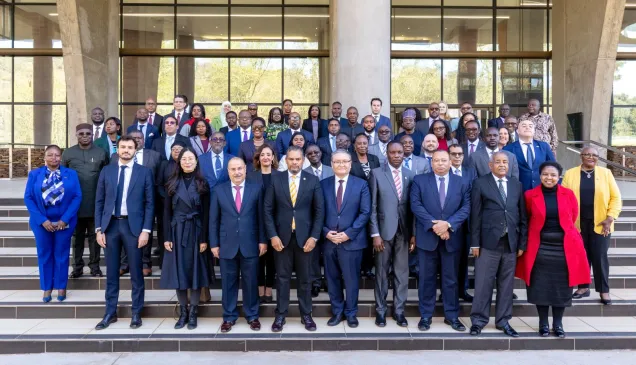
Tool on African Traditions and the Preservation of Humanity in Warfare
Is the principle that "Even Wars Have Limits" universal? The International Committee of the Red Cross examined the historical relationship between Africa and international humanitarian law, as reflected in traditional practices of different ethnic groups, and the answer is "yes".
ATTACKS WERE ONLY DIRECTED AGAINST WARRIORS
The Mbo Abaw customarily did not kill anyone else during war except warriors on the opposing side who were directly involved in the battle. Nigeria
In Upper Volta, custom among the Mossi forbade the killing of people taking no part in the fighting, including workers in the fields. Morals and rules of honour prohibited attack against someone considered to be weaker, and hence defenceless. The penalty for violating such rules could be banishment or even death. Burkina Faso
RULES OF INTERNATIONAL HUMANITARIAN LAW
“The parties to the conflict must at all times distinguish between civilians and combatants.
Attacks may only be directed against combatants. Attacks must not be directed against civilians.”
AP I Arts. 48, 50 & 51(1-2); AP II Art. 13(2) & CIHL Rule 1

WARRIORS DISTINGUISHED THEMSELVES THROUGH CLOTHING AND MARKINGS
Maasai warriors wore ivory armbands to distinguish themselves from the civilian population. Kenya
Ndebele regiments under King Mzilikazi carried shields made of cattle hides of distinct colour and patterns and bore markings and facial scars during battle to make them stand out and be recognizable. Southern Africa
RULES OF INTERNATIONAL HUMANITARIAN LAW
“In order to promote the protection of the civilian population from the effects of hostilities, combatants are obliged to distinguish themselves from the civilian population while they are engaged in an attack or in a military operation preparatory to an attack. …”
AP I Art. 44(3) (sentence 1) & CIHL Rule 106 (sentence 1)

WOUNDED ENEMY SOLDIERS WERE TREATED AND CARED FOR
When Fulani warriors captured wounded prisoners of the opposition, they were turned over to the women to treat and care for them. As there is a special place for strangers in African culture, they were treated with respect and dignity. Sahel Region
If an injured enemy warrior was captured, they would be brought back to the village and cared for. Once healed they had the option to return to their village or assimilate into their new home. Somalia
For the Onitsha tribe, women accompanied the men to battle strictly to help the wounded and to assist with bringing the dead/fallen warriors back home. Nigeria
RULES OF INTERNATIONAL HUMANITARIAN LAW
“Whenever circumstances permit, and particularly after an engagement, each party to the conflict must, without delay,
take all possible measures to search for, collect and evacuate the wounded, sick and shipwrecked without adverse distinction.”
“The wounded, sick and shipwrecked must receive, to the fullest extent practicable and with the least possible delay, the medical care and attention required by their condition. No distinction may be made among them founded on any grounds other than medical ones.”
GC I-IV Common Art. 3; GC I Arts. 12, 15 & 18; GC II Arts. 12 & 18; GC IV Art. 16; AP I Arts. 10 & 17(2); AP II Arts. 7, 8 & 18(1) & CIHL Rules 109 & 110

WARRIORS COULD NEVER KILL AN ENEMY WHO HAD SURRENDERED
Among the Baganda, young warriors were taught to never kill an enemy who had surrendered or who was seriously injured. East Africa
For the Pulaar, "so dimo riddi dimo haa naatie ngaska foolidum" - attacking a combatant who had surrendered was not allowed unless he himself attacked the soldiers who were capturing him. Mauritania and Senegal
RULES OF INTERNATIONAL HUMANITARIAN LAW
“Attacking persons who are recognized as hors de combat is prohibited.
A person hors de combat is:
(a) anyone who is in the power of an adverse party;
(b) anyone who is defenceless because of unconsciousness,
shipwreck, wounds or sickness; or
(c) anyone who clearly expresses an intention to surrender;
provided he or she abstains from any hostile act and does not attempt to escape.”
GC I-IV Common Art. 3(1); AP I Art. 41(1-2) & CIHL Rules 47 & 89
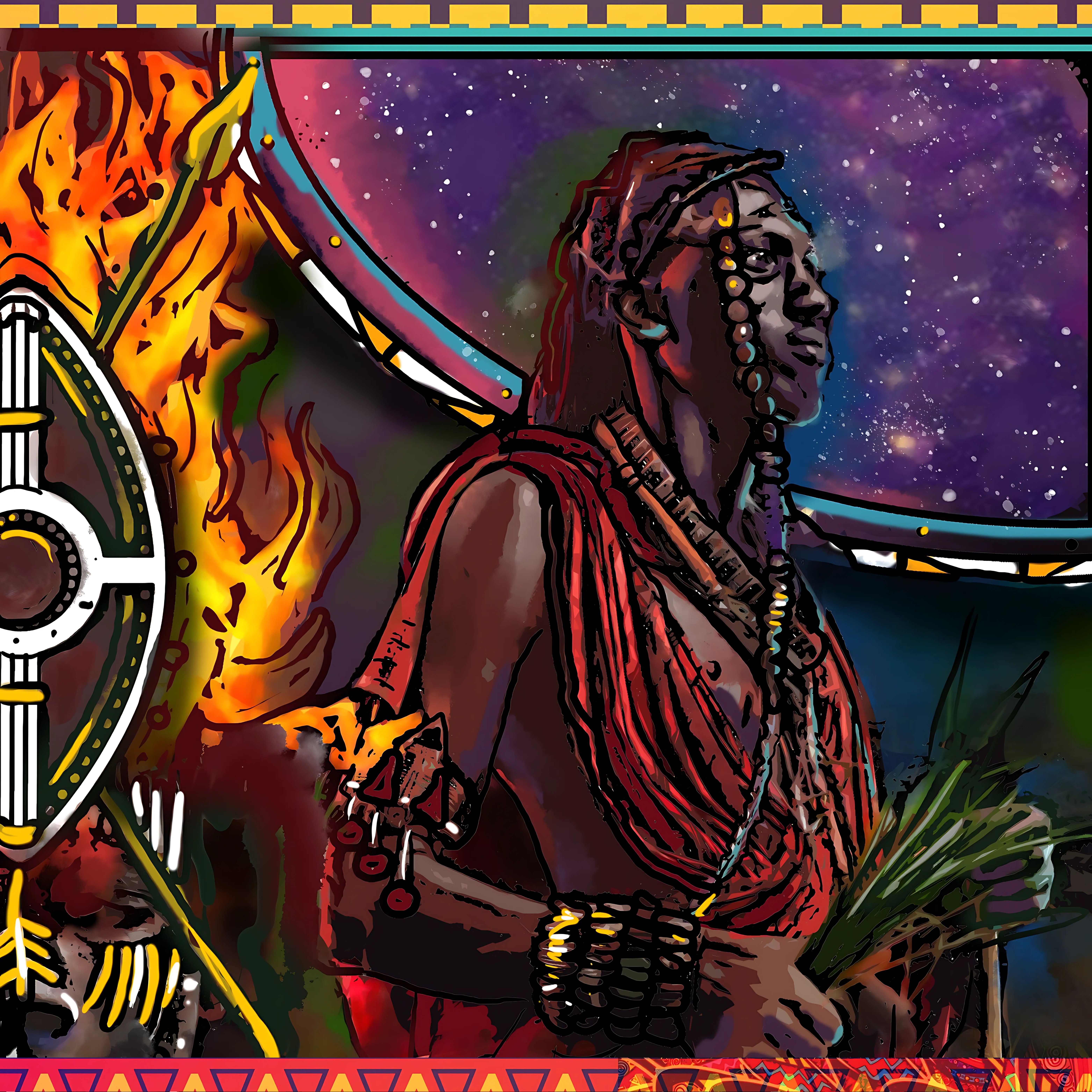
MESSENGERS WERE PROTECTED FROM ATTACK BY DISTINCTIVE FACE PAINT OR HOLDING BATONS OR GRASS
Tribes in the Sahel Region made messengers carry a distinctive emblem such as an official baton or don face paint which exempted them from fighting and protected them from attacks. Sahel Region
RULES OF INTERNATIONAL HUMANITARIAN LAW
“Parlementaires are inviolable.”
“Parlementaires taking advantage of their privileged position to commit an act contrary to international law and detrimental to the adversary lose their inviolability.”
“The improper use of the white flag of truce is prohibited.”
CIHL Rules 58, 66, 67 & 69

CAPTIVES WERE NOT TREATED WITH DISDAIN
The Ndebele deployed 'codes of warfare' that encouraged humane treatment of war captives – 'inxeba lendoda kalihlekw' (you do not make fun of another man's misfortune) was intended to discourage triumphalist tendencies by the winning side in battle and a reminder not to treat captives and prisoners with disdain. South Africa and Zimbabwe
In the Kikuyu community, prisoners captured during war were welcomed into the warrior's family and were treated as their brothers or sisters. Kenya
The Ngoni were law-abiding and had a strong moral code; this attitude was extended to apply to captives. Central Africa
RULES OF INTERNATIONAL HUMANITARIAN LAW
“Prisoners of war must at all times be humanely treated. Any unlawful act or omission by the Detaining Power causing death or seriously endangering the health of a prisoner of war in its custody is prohibited and will be regarded as a serious breach of the present Convention. In particular, no prisoner of war may be subjected to physical mutilation or to medical or scientific experiments of any kind which are not justified by the medical, dental or hospital treatment of the prisoner concerned and carried out in his interest. Likewise, prisoners of war must at all times be protected, particularly against acts of violence or intimidation and against insults and public curiosity.”
GC I-IV Common Art. 3; GC III Art. 13; GC IV Art. 27; AP I Art. 75(1); AP II Art. 4(1) & CIHL Rule 87
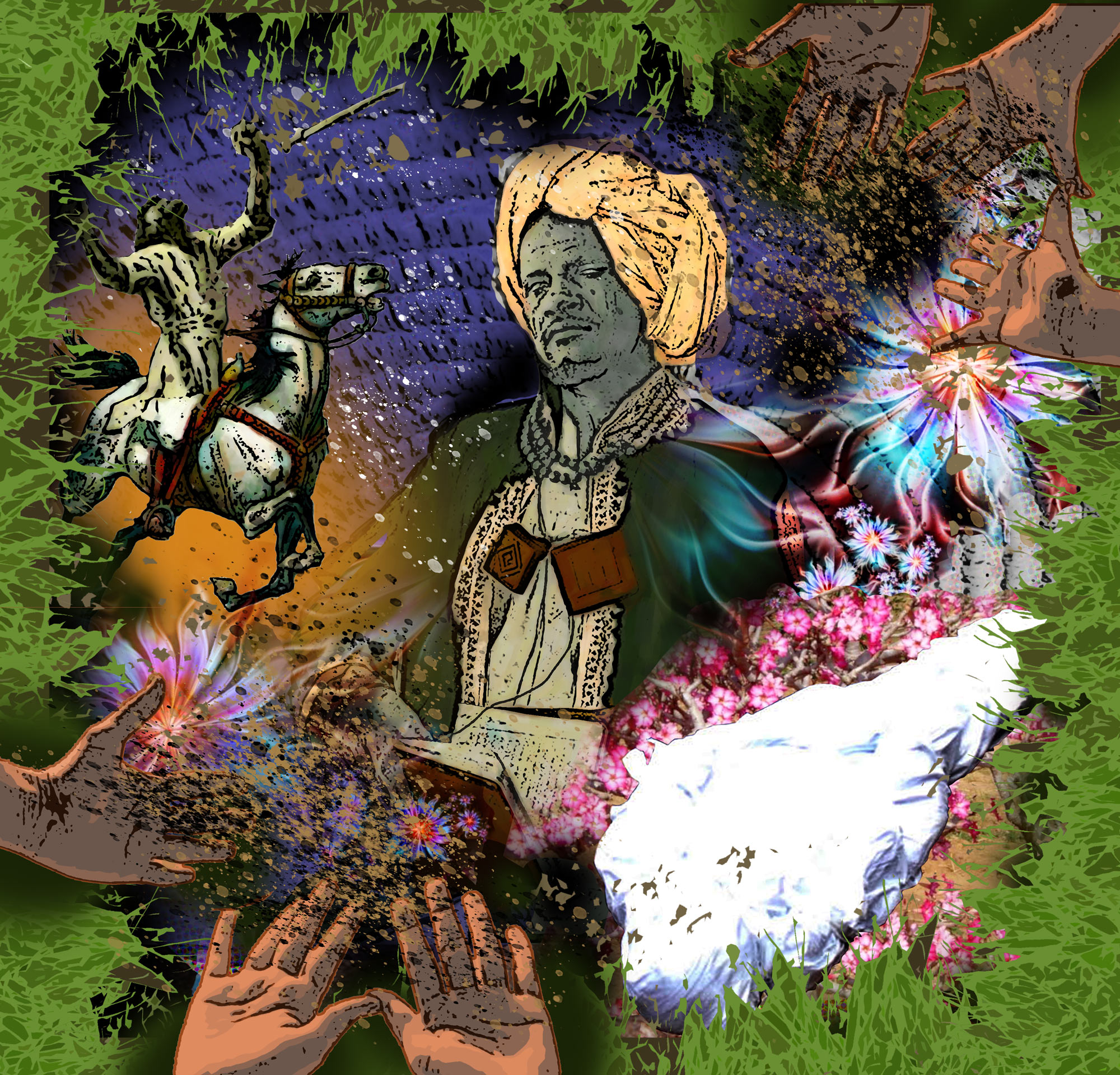
THE BODIES OF THE ENEMY DEAD COULD NOT BE DESECRATED OR SEARCHED
The bodies of the enemy should not be mutilated or burned and should not be searched for gain. Somalia
The wounded and the dead were generally returned; for "after death there is no hate". To wreak vengeance on a dead body would have been frowned upon by everybody. Senegal
RULES OF INTERNATIONAL HUMANITARIAN LAW
“Each party to the conflict must take all possible measures to prevent the dead from being despoiled. Mutilation of dead bodies is prohibited.”
Especially: GC I Art. 15(1); GC II Art. 18(1); GC IV Art. 16(2);
AP I Arts. 34(1) & 34(2); AP II Art. 8 & CIHL Rules 113 & 114

FIGHTING BETWEEN TRIBES TOOK PLACE OUTSIDE OF THE VILLAGE
Tribes in Senegal, Togo and Ghana only fought outside the village to protect the women, children and elderly. Senegal, Togo and Ghana
The Ishielu customarily limited war to farmlands only, rather than within the enemy town or theirs. Nigeria
RULES OF INTERNATIONAL HUMANITARIAN LAW
“In the conduct of military operations, constant care must be taken to spare the civilian population, civilians and civilian objects.”
“The parties to the conflict shall to the maximum extent feasible take the other necessary precautions to protect the civilian population, individual civilians and civilian objects under their control against the dangers resulting from military operations.”
AP I Arts. 57(1) & 58(c); AP II Art. 13(1) & CIHL Rules 15, 17 & 22

EXCESSIVE AND BRUTAL ACTS OF WAR BROUGHT ABOUT DIVINE RETRIBUTION
Any act of war that was characterized by excessiveness and brutality would bring divine retribution upon the perpetrator and his offspring. Somalia
RULES OF INTERNATIONAL HUMANITARIAN LAW
“Launching an attack which may be expected to cause incidental loss of civilian life, injury to civilians, damage to civilian objects, or a combination thereof, which would be excessive in relation to the concrete and direct military advantage anticipated, is prohibited.”
AP I Art. 51(5)(b) & CIHL Rule 14

SIGNALS SUCH AS BEATING DRUMS WERE GIVEN TO WARN OF UPCOMING BATTLES
When the Ashanti tribe was faced with battle, a royal drum was beaten to signal the upcoming battle and to call the warriors whilst warning civilians of upcoming danger. Ghana
In the Oronn district in Nigeria, when one town decided to go to war against another, two men were sent to lay a plantain leaf upon the road entering the town, warning civilians of impending hostilities. Nigeria
The enemy would be informed of the time and place of battle. The practice of informing the enemy helped to minimize the loss of life or property of parties not actually taking part in the war. Ethiopia
RULES OF INTERNATIONAL HUMANITARIAN LAW
“Effective advanced warning shall be given of attacks which may affect the civilian population, unless circumstances do not permit.”
AP I Art. 57(2)(c) & CIHL Rule 20
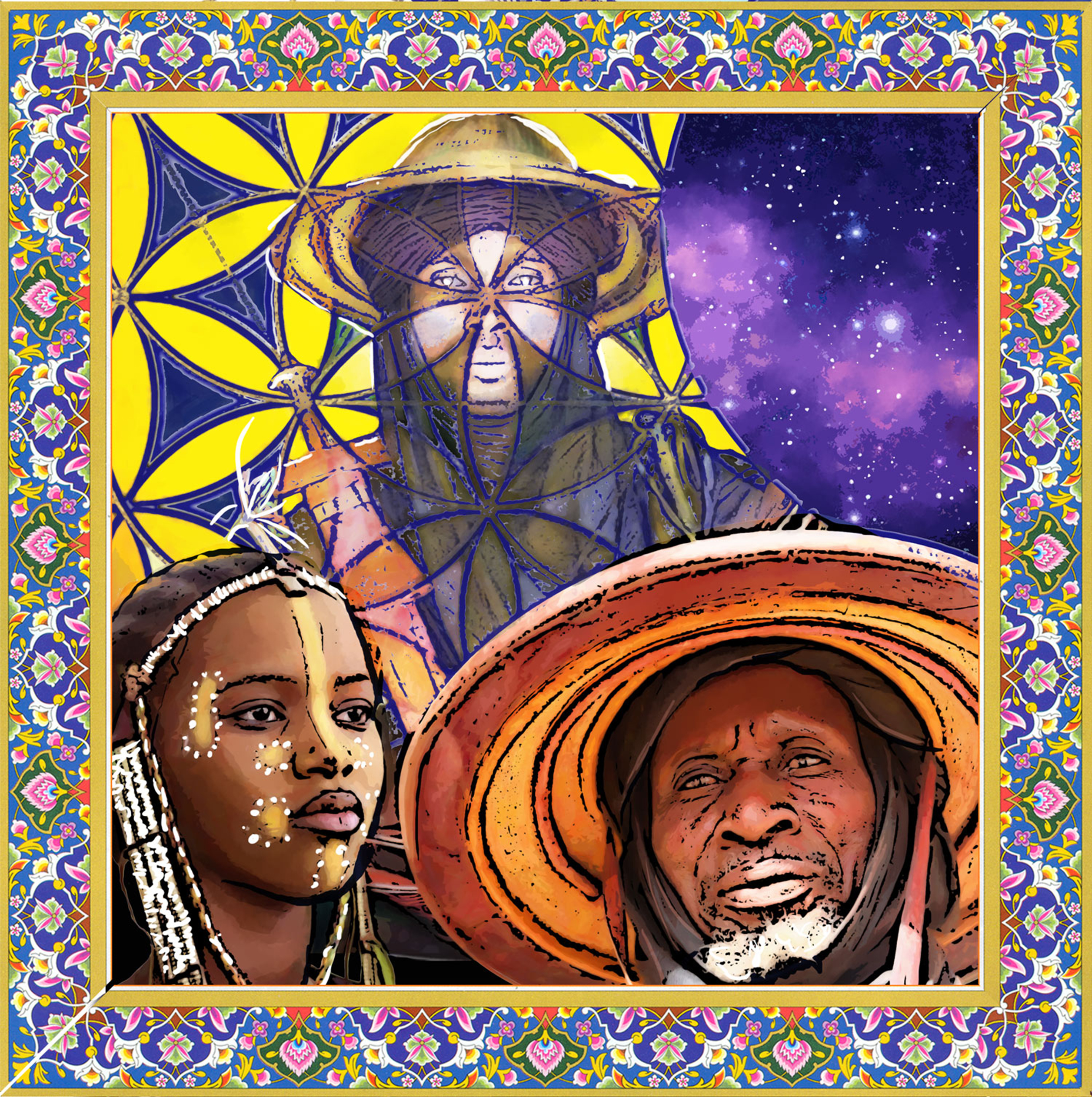
ATTACKING WOMEN, CHILDREN AND THE ELDERLY BROUGHT SHAME TO THE WARRIORS
Nuer tribesmen did not attack women, children or the elderly when attacking one another. South Sudan
The Fulani believed that attacking women, children and the elderly would bring shame upon the tribe. Sahel Region
In Ethiopia, if a man killed an enemy woman, he would not have the right to wear butter on his hair or the right to hold kuda; he was highly despised and laughed at. Ethiopia
Women and children were rarely killed. To kill a protected person was considered a reckless and disgraceful act. Kenya
When Nuer tribesman raided one another any form of ill treatment of women and children was strictly prohibited. South Sudan
RULES OF INTERNATIONAL HUMANITARIAN LAW
Women, children, the elderly and persons with disabilities affected by armed conflict are entitled to special respect and protection.
Especially: GC IV Arts. 16(1) & 27(2); AP I Arts. 76(1) & 77(1); AP II Art. 4(3) & CIHL Rules 134, 135 & 138
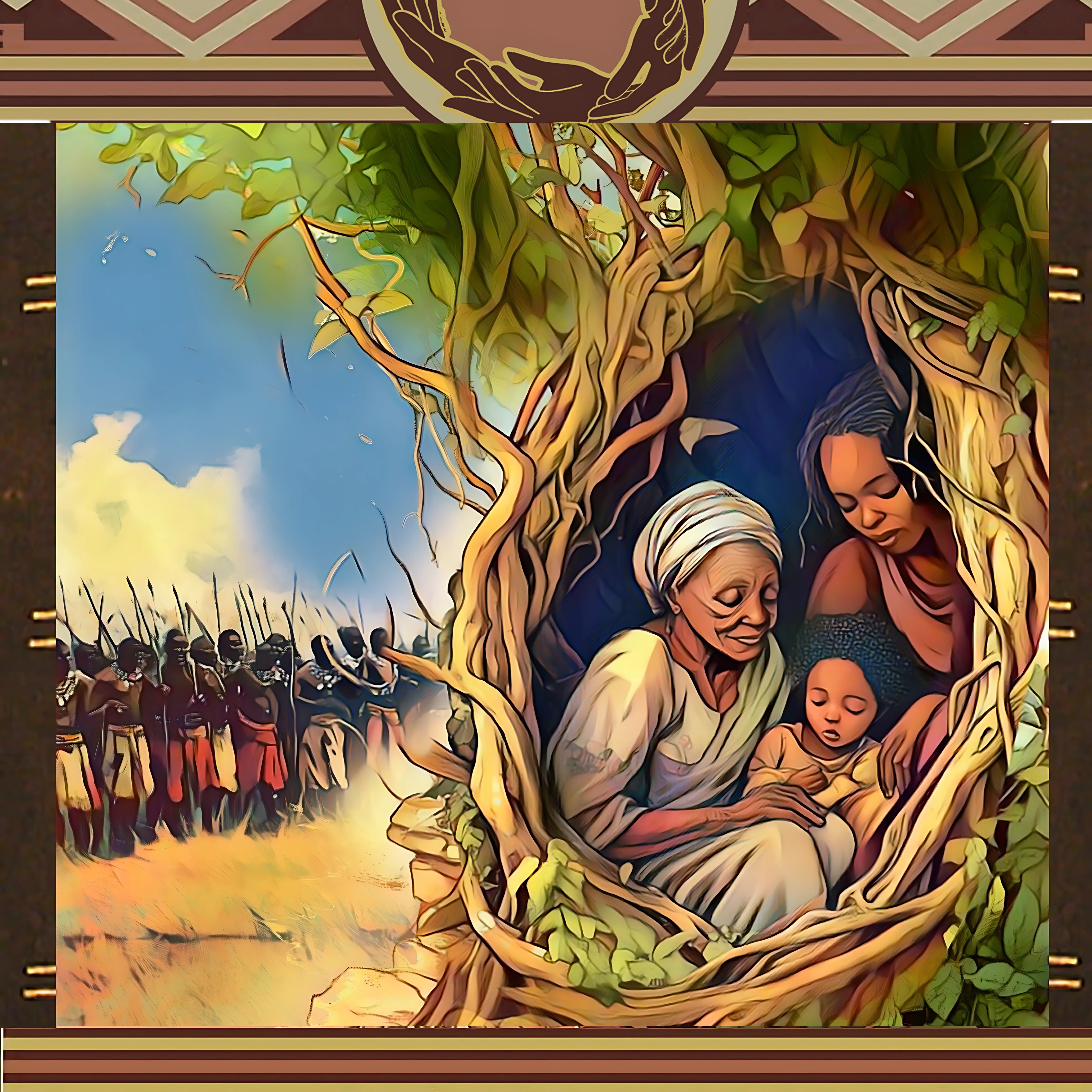
SAFE AREAS AND SHELTERS WERE CREATED FOR WOMEN AND CHILDREN
During conflicts, the Maconde tribe established safe shelters for women and children. These places, often located in protected and hard-to-reach areas, served as havens during times of danger. The communities organized the construction of these shelters using local knowledge of fortification and camouflage. Mozambique
Women, children and the elderly were relocated to a safe area during fighting. Senegal, Togo and Ghana
RULES OF INTERNATIONAL HUMANITARIAN LAW
Parties to a conflict may establish hospital, safety and neutralized zones to shelter the wounded, the sick and civilians from the effects of hostilities.
“Directing an attack against a zone established to shelter the wounded, the sick and civilians from the effects of hostilities is prohibited.”
GC I Art. 23; GC IV Arts. 14 & 15 & CIHL Rule 35

TRICKERY OR DECEIT AS PART OF AN ATTACK WAS PROHIBITED
For the Pulaar, jamfo (perfidy) was prohibited because it conflicted with the virtues of honour and courage. Mauritania and Senegal
RULES OF INTERNATIONAL HUMANITARIAN LAW
“It is prohibited to kill, injure or capture an adversary by resort to perfidy. Acts inviting the confidence of an adversary to lead him to believe that he is entitled to, or is obliged to accord, protection under the rules of international law applicable in armed conflict, with the intent to betray that confidence, shall constitute perfidy.”
AP I Art. 37(1) & CIHL Rule 65

DIRECT ATTACKS TO LAND AND WATER SOURCES WERE STRONGLY DISAPPROVED OF
Destroying the plains used for cattle grazing or the poisoning of wells needed for survival was strongly disapproved of. Somalia
For the Maasai, direct attacks to land, water sources, animals and crops were strictly prohibited. Kenya
RULES OF INTERNATIONAL HUMANITARIAN LAW
“The use of poison or poisoned weapons is prohibited.”
“Attacking, destroying, removing or rendering useless objects indispensable to the survival of the civilian population is prohibited.”
AP I Art. 54(2); AP II Art. 14 & CIHL Rules 54 and 72

PLACES OF WORSHIP WERE PROTECTED FROM ATTACK
It was strictly forbidden by Fulani warriors to desecrate places of worship. Sahel Region
The Mundari and Lotuka communities believed that destroying worship materials might bring bad luck. South Sudan
The residence of the Abuna - the head of the Ethiopian Orthodox church - where the sacrament was administered was regarded as an island of safety and security. Ethiopia
The Makwé tribe was committed to preserving sacred sites like places of worship during invasions of other tribes' territories. This tribe did not have formal churches, but places of worship were marked by the presence of a tree called "Mbone," which signified a place of respect. Vandalizing such a place was strictly prohibited. Mozambique
RULES OF INTERNATIONAL HUMANITARIAN LAW
Each party to the conflict must respect and protect institutions dedicated to religion, charity, education, the arts and sciences, historic monuments and works of art and science.
Among others: AP I Art. 53; AP II Art 16 & CIHL Rules 38, 39 & 40

WARRIORS WOULD NOT DESECRATE THE PLACE OF REST OF THEIR ANCESTORS
It was strictly forbidden by Fulani warriors to desecrate the place of rest of the deceased. Sahel Region
The Makwé tribe was committed to preserving sacred sites like cemeteries during invasions of other tribes' territories. Mozambique
RULES OF INTERNATIONAL HUMANITARIAN LAW
“The dead must be disposed of in a respectful manner and their graves respected and properly maintained.”
Among others: GC I Art. 17; GC III Art. 120; GC IV Art. 130; AP I Art. 34 & CIHL Rule 115

ATTACKING, LOOTING AND PILLAGING OF PROPERTY WAS A VIOLATION OF DIGNITY
The Tallensi considered attacking, looting and pillaging of civilian property a violation of their dignity and a dishonourable act to be avoided. Ghana
The traditional rules which regulated the behaviour of Kamajors in warfare included the prohibition of looting villages. Sierra Leone
Fighters from the Dinka of Bahar El Gazal region specified that “in our time, no burning of houses, no destruction of crops, no looting, all these behaviours are prohibited in our rules of fighting”. South Sudan
In the Equatorial region, it was prohibited to loot properties belonging to an opponent community according to both Mundari and Lotuka traditional rules of fighting. South Sudan
RULES OF INTERNATIONAL HUMANITARIAN LAW
“Pillage is prohibited.”
“The destruction or seizure of the property of an adversary is prohibited, unless required by imperative military necessity.”
GC IV Arts. 33(2) & 53; AP II Art. 4(2)(g) & CIHL Rules 50 & 52
Illustrations: Anastasya Eliseeva

